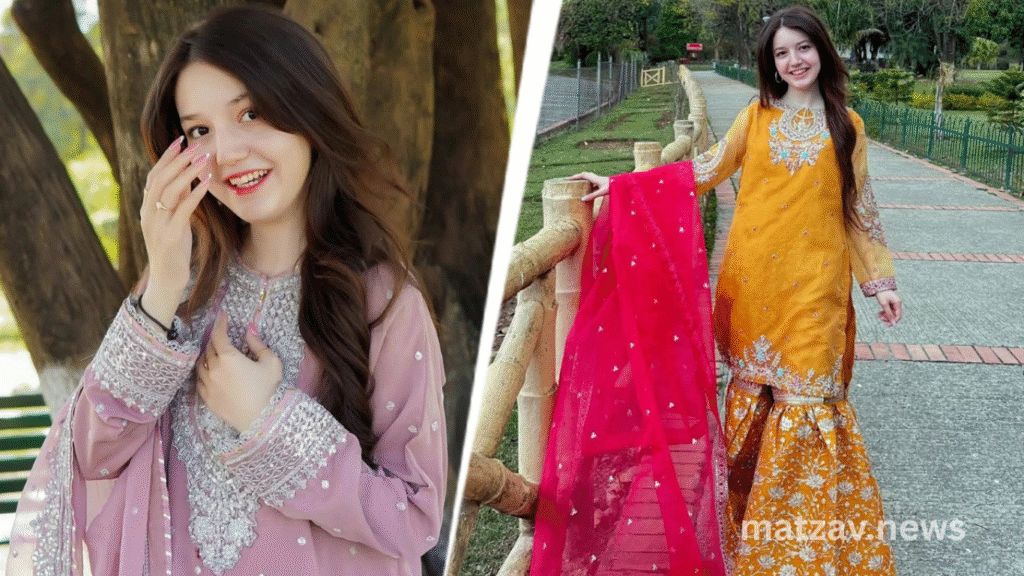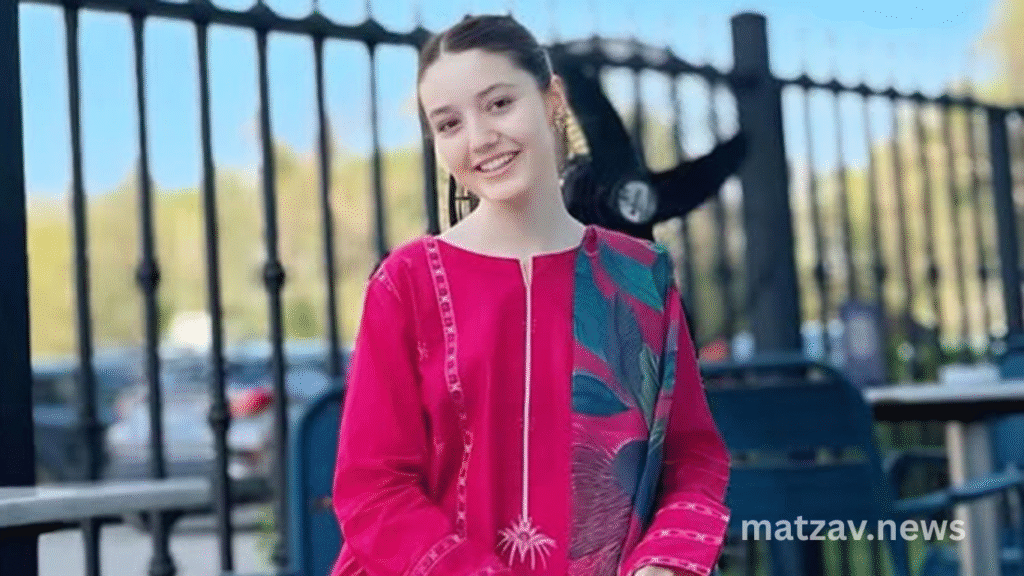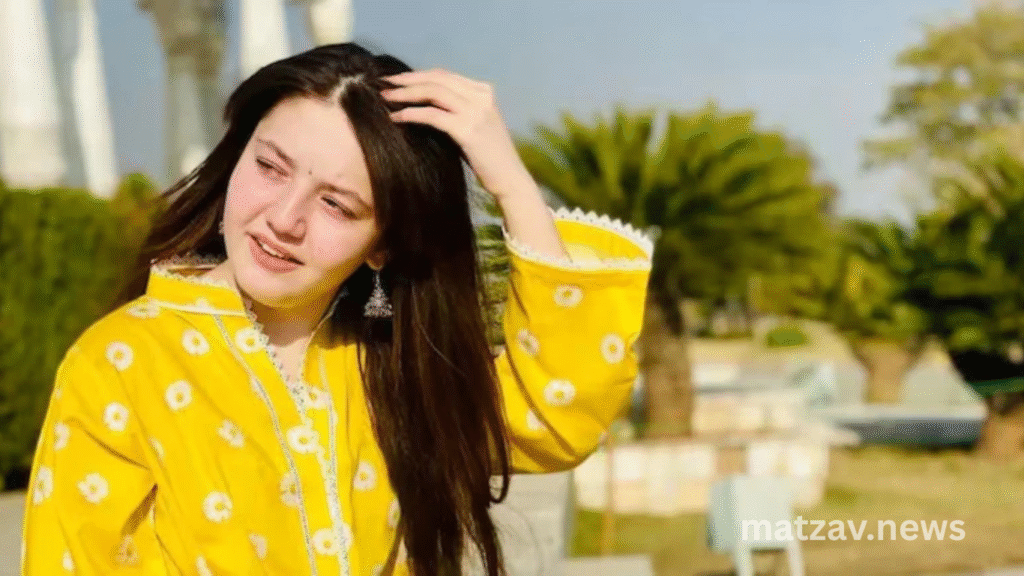Sana Yousaf 17-Year-Old Pakistani Influencer Killed for ‘Rejecting Man’ is a tragic incident that has shaken the nation. On June 2, 2025, Sana Yousaf, a vibrant and influential 17-year-old TikTok star, was fatally shot in her Islamabad home. The suspect, her cousin Umar Hayat, allegedly committed the act after facing repeated rejections from Sana. This heartbreaking event underscores the persistent issues of gender-based violence and the dangers women face when asserting their autonomy.
Sana’s untimely death has ignited a nationwide conversation about the safety of women, especially those in the public eye. As a young influencer who championed women’s rights and cultural identity, her loss is deeply felt across communities. This article delves into the life of Sana Yousaf, the circumstances surrounding her murder, and the broader societal implications of such acts of violence.
The Life and Legacy of Sana Yousaf

A Rising Star in the Digital World
Born on June 2, 2007, in Upper Chitral, Khyber Pakhtunkhwa, Sana Yousaf moved to Islamabad with her family, where she pursued her education in medical sciences. At just 17, she had amassed over 740,000 followers on TikTok and nearly 500,000 on Instagram, captivating audiences with her content that celebrated regional culture, women’s rights, and educational awareness. Her vibrant personality and commitment to social issues made her a beloved figure among Pakistan’s youth.
Advocacy Through Content
Sana’s digital presence was more than just entertainment; it was a platform for advocacy. She used her influence to highlight the rich cultural heritage of Pakistan, often showcasing traditional Chitrali dresses and folk songs. Beyond cultural promotion, she was vocal about women’s rights, encouraging young girls to pursue education and stand up against societal injustices. Her content resonated deeply in conservative regions, making her a beacon of hope and progress.
The Tragic Incident

The Events Leading to the Murder
On the evening of June 2, 2025, Sana was at home with her aunt when Umar Hayat, her cousin, visited. According to reports, Sana told him, “Go away from here. There are cameras all around. I will fetch you some water.” Moments later, Hayat shot her twice in the chest at close range, leading to her immediate death. Her body was transported to the Pakistan Institute of Medical Sciences for a post-mortem examination.
The Investigation and Arrest
Islamabad Police launched an immediate investigation, utilizing CCTV footage and mobile data analysis. Hayat was apprehended in Faisalabad approximately 20 hours after the murder. He confessed to the crime, stating that he had been repeatedly rejected by Sana. The police recovered the murder weapon, the clothes worn during the incident, and Sana’s mobile phone. Investigators analyzed footage from 113 cameras and over 300 phone calls during the investigation.
Read More : Air India Pakistan Airspace Ban Raises Costs
Societal Implications and Reactions
Public Outcry and Demand for Justice
The murder of Sana Yousaf elicited widespread condemnation from government officials, civil society, and the public. Interior Minister Mohsin Naqvi commended the swift action of law enforcement, stating, “Well done Islamabad Police. Sana Yousaf murder case traced, accused arrested, and weapon recovered within 20 hours.” On social media, the hashtag #JusticeForSanaYousaf trended as users expressed grief and demanded justice.
The Broader Issue of Gender-Based Violence
Sana’s death is not an isolated incident but part of a disturbing pattern of violence against women in Pakistan. Honor killings and gender-based violence remain prevalent due to deeply entrenched societal norms, lack of legal enforcement, and cultural acceptance. This tragedy has reignited discussions about the need for systemic changes to protect women and challenge patriarchal structures that perpetuate such crimes.

Frequently Asked Questions
Who was Sana Yousaf?
Sana Yousaf was a 17-year-old Pakistani social media influencer known for her content promoting women’s rights and cultural identity. She had a significant following on TikTok and Instagram, where she engaged audiences with her vibrant personality and advocacy.
What happened to Sana Yousaf?
On June 2, 2025, Sana was fatally shot in her Islamabad home by her cousin, Umar Hayat, after she reportedly rejected his advances. The incident is being investigated as a case of gender-based violence.
How did the authorities respond to the incident?
Islamabad Police acted swiftly, arresting the suspect within 20 hours of the murder. They utilized CCTV footage and mobile data analysis to track and apprehend Umar Hayat in Faisalabad.
What has been the public reaction to Sana’s death?
The public has expressed outrage and grief over Sana’s murder. Social media platforms have been flooded with tributes and demands for justice, with the hashtag #JusticeForSanaYousaf trending nationwide.
What does this incident say about women’s safety in Pakistan?
Sana’s death highlights the ongoing challenges women face in Pakistan regarding safety and autonomy. It underscores the urgent need for societal and legal reforms to protect women from gender-based violence.
Are there laws in place to prevent such incidents?
While Pakistan has laws against honor killings and gender-based violence, enforcement remains inconsistent. Activists call for stricter implementation and societal change to address the root causes of such crimes.
How can society support women influencers and activists?
Society can support women influencers by creating safe environments, challenging patriarchal norms, and promoting gender equality. Education and awareness campaigns are crucial in changing mindsets and behaviors.
What steps can be taken to prevent similar tragedies?
Preventing such tragedies requires a multifaceted approach, including legal reforms, public awareness, community engagement, and support systems for women. Empowering women and holding perpetrators accountable are essential steps forward.
Conclusion
The tragic death of Sana Yousaf serves as a stark reminder of the dangers women face when asserting their autonomy. Her legacy as a young influencer advocating for women’s rights must inspire collective action to challenge societal norms and protect future generations from similar fates
